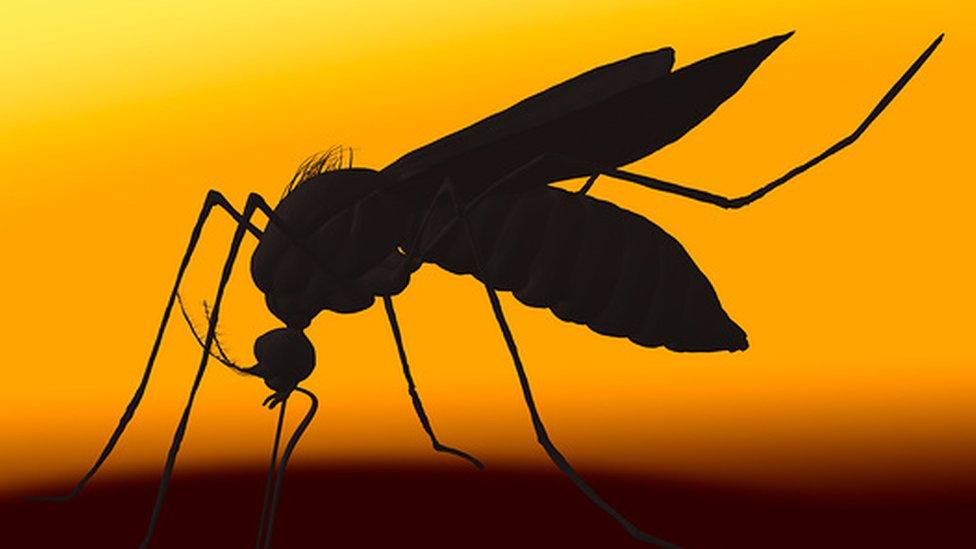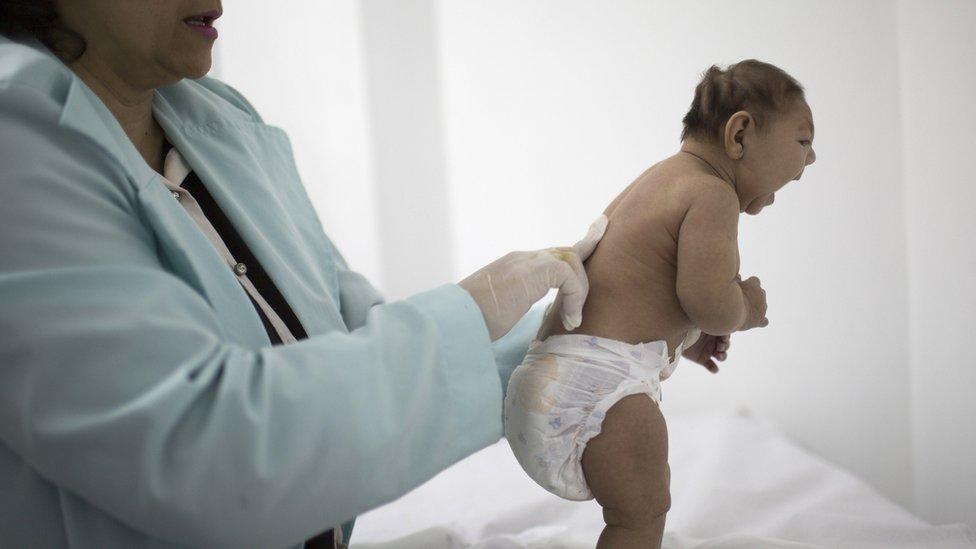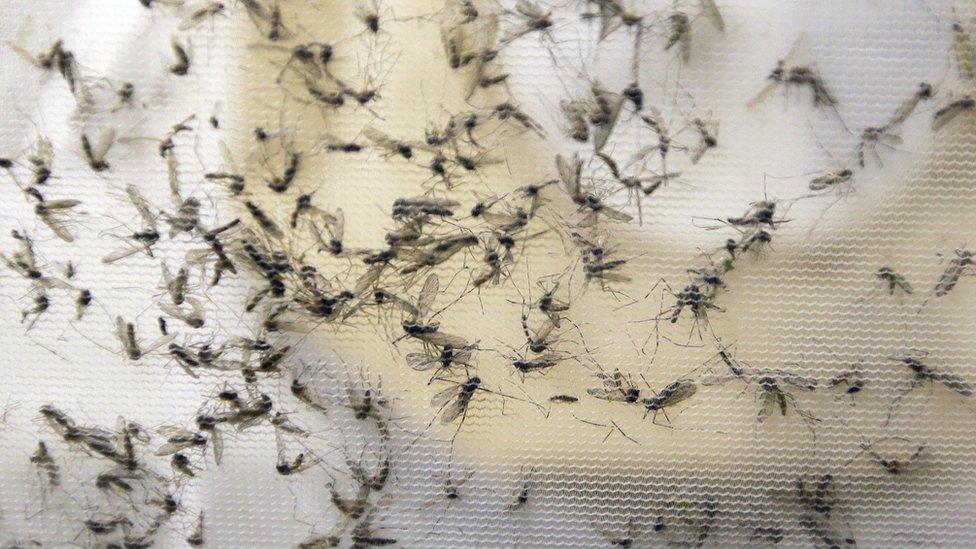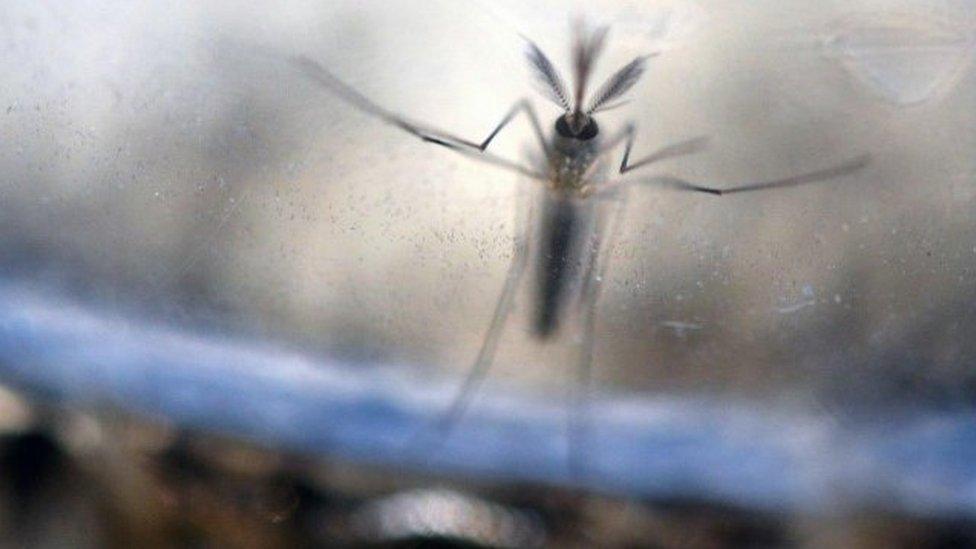Zika vaccine 'works very well' in mice
- Published

A single dose of an experimental vaccine can protect mice against the Zika virus, raising renewed hope of a vaccine for humans, say scientists.
The US team say the results, published in Nature, external, are "striking" and should "galvanise" research efforts.
Tests in humans could begin in months.
But even if these go well, a licensed vaccine for widespread use to protect those at most risk - such as pregnant women - would still be years away, experts advise.
Urgent need
Zika has been spreading across Central and South America and, most recently, Africa.
More than 60 countries and territories now have continuing transmission of the disease, which is carried by mosquitoes.
The virus causes serious birth defects during pregnancy and has been declared a global public health emergency.

A baby from Brazil who has microcephaly - a birth defect linked to Zika
Developing a vaccine for pregnant women to protect their unborn babies is an international research priority.
Zika jab
US scientists from the Walter Reed Army Institute of Research, the Beth Israel Deaconess Medical Center and Harvard Medical School tested two types of Zika vaccine in mice - one based on bits of genetic code from the virus and another that is an inactive (and therefore harmless) replica of Zika.
Both worked well, protecting every mouse that was immunised against the virus. In comparison, all of the mice not given the vaccine caught Zika after they were exposed to it.

The WRAIR says it will push ahead with developing the purified inactivated virus vaccine, because this approach is well chartered ground - there are many existing vaccines for other disease that use this type of technology, whereas there are relatively few DNA-based vaccines.
Future tests will need to check the vaccine is safe and effective in humans, as well as how long the immunity might last.
Researcher Dr Dan Barouch said: "There's a lot of unknowns.
"With the preclinical demonstration of efficacy of these Zika virus vaccines, then we hope that this news will electrify and galvinise the vaccine effort against Zika virus."
Other researchers, external have been testing what effect Zika infection has on the immune system of monkeys.
They have shown that once the animals have recovered from the infection, they have lasting immunity against the disease - at least for the few months the researchers have been able to observe to date.
The University of Wisconsin-Madison researchers say this is good news for vaccine developers.
Lead researcher Prof David O'Connor said: "It suggests the sort of immunity that occurs naturally is sufficient.
"If you can mimic that in a vaccine, you'll likely have a very successful vaccine."

But other experts are more cautious.
Prof Jonathan Ball, from the UK's Nottingham University, said there were potential risks with the vaccine that needed addressing.
"These studies clearly show us that the vaccine is able to generate antibodies that protect the mice from Zika infection," he said.
"However, it is also possible that the vaccine might produce antibodies that also recognise other viruses from the same family, like Dengue virus for example.
"The real worry is that these cross-reactive antibodies may actually enhance the infection of the other viruses, potentially causing very severe disease."
Prof Peter Openshaw, from the British Society for Immunology, said it was important to move to human studies as soon as possible.
"By the time human vaccines are ready, many of the vulnerable population will have already been naturally infected," he said.
"The purpose of vaccination will presumably be to protect travellers and those wishing to become pregnant.
"It will be vital to see how vaccines will work in such situations and how the practical and economic barriers to vaccine deployment can be overcome."
Follow Michelle on Twitter, external
- Published4 March 2016
